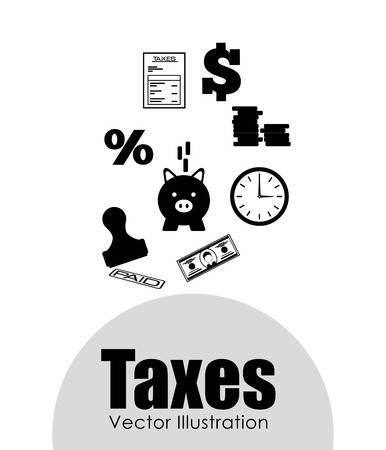Overview of Rental Property Taxation
Investing in rental property can be a smart way to build wealth, but understanding how the IRS taxes rental income is crucial for every landlord in the United States. Rental property taxation is governed by specific rules that determine what counts as taxable income and which expenses are deductible. When you rent out real estate, any money you receive from tenants—such as monthly rent payments, advance rent, and even certain security deposits—is generally considered rental income and must be reported on your federal tax return.
The IRS distinguishes between active and passive income, and most rental activities fall under the category of passive income. This affects not only how your income is taxed but also how you can claim deductions and report losses. Additionally, landlords must adhere to detailed recordkeeping requirements to ensure compliance and maximize their allowable tax benefits.
Heres a quick look at the basics of how rental property income is taxed for U.S. landlords:
| Type of Income/Expense | Tax Treatment | IRS Rules/Notes |
|---|---|---|
| Rental Income (Rent Payments) | Taxable | Report full amount received during the year |
| Advance Rent | Taxable in year received | Must include in income when received, not when due |
| Security Deposits (kept) | Taxable if not returned | If used for repairs or unpaid rent, include as income |
| Deductible Expenses (Repairs, Maintenance) | Generally Deductible | Must be ordinary, necessary, and directly related to rental activity |
| Depreciation | Annual deduction allowed | Can deduct part of propertys cost each year over its useful life |
Understanding these foundational rules sets the stage for maximizing your deductions and minimizing your tax liability as a landlord. The key is to familiarize yourself with IRS guidelines and keep thorough records of all rental-related transactions.
Reporting Rental Income and Expenses
Accurately reporting your rental income and expenses is crucial for staying compliant with IRS regulations and maximizing your tax benefits. The Internal Revenue Service (IRS) requires landlords to report all rental income and deductible expenses on their federal tax returns, typically using Schedule E (Form 1040). Understanding what qualifies as rental income, which expenses are deductible, and how to properly document them can help you reduce your taxable income and avoid costly mistakes.
What Counts as Rental Income?
Rental income includes more than just the monthly rent payments you receive from tenants. According to IRS guidelines, the following sources should be reported as rental income:
| Type of Income | Description |
|---|---|
| Rent Payments | Monthly or weekly payments received from tenants |
| Advance Rent | Any rent paid before the period it covers (e.g., first and last month’s rent) |
| Security Deposits (if not returned) | If kept for cleaning or damages, must be reported as income |
| Lease Cancellation Fees | Amounts paid by tenants for ending a lease early |
| Services Received Instead of Rent | The fair market value of services performed by a tenant in lieu of payment (e.g., repairs or landscaping) |
Deductible Rental Expenses
You can deduct a wide range of ordinary and necessary expenses associated with managing, conserving, or maintaining your rental property. Below are some common deductible expenses:
| Expense Category | Examples |
|---|---|
| Mortgage Interest | Interest paid on loans used to acquire or improve the property |
| Property Taxes | Local or state real estate taxes assessed on the property |
| Repairs & Maintenance | Patching leaks, fixing appliances, repainting, etc. |
| Insurance Premiums | Landlord insurance, hazard insurance, liability coverage |
| Depreciation | Deductions for wear and tear over time (excluding land value) |
| Professional Services | Fees for property managers, accountants, legal advice, etc. |
| Utilities Paid by Landlord | Water, electricity, gas if not reimbursed by tenants |
| Advertising & Leasing Costs | Ads for vacancies, leasing commissions, tenant screening fees |
| Travel Expenses* | Mileage or transportation costs related to managing the property (see IRS guidelines for limitations) |
*Note:
Certain travel expenses may be subject to strict substantiation requirements—keep detailed records.
How to Report on Your Tax Return Using Schedule E
Your rental income and expenses should be reported on Schedule E (Supplemental Income and Loss), which is attached to your Form 1040. On Schedule E, you’ll list each property separately and enter the total rents received, along with each category of deductible expense. It’s essential to keep thorough documentation—such as receipts, invoices, bank statements, and mileage logs—to support your claims in case of an IRS audit.
Tips for Accurate Reporting:
- Keep Separate Accounts: Maintain separate bank accounts for rental activity to simplify recordkeeping.
- Date Everything: Note the date of each transaction so that you report it in the correct tax year.
- Categorize Deductions: Use accounting software or spreadsheets to categorize expenses consistently throughout the year.
If you’re unsure about certain deductions or reporting requirements, consult with a tax professional experienced in U.S. real estate taxation. Proper reporting not only keeps you compliant but also ensures you’re maximizing every allowable deduction.

3. Key Deductions for Landlords
Understanding which expenses you can write off is crucial to maximizing your rental property profits at tax time. The IRS allows landlords to deduct a variety of costs associated with owning and managing rental properties. Below, we’ll explore the most common deductions available and how they can impact your bottom line.
Common Rental Property Tax Deductions
| Deduction Type | Description |
|---|---|
| Mortgage Interest | The interest paid on loans used to buy or improve your rental property is fully deductible. |
| Property Taxes | State and local property taxes paid on your rental property are generally deductible each year. |
| Repairs & Maintenance | Expenses for ordinary repairs (like fixing leaks or painting) can be deducted in the year they’re incurred. |
| Depreciation | You can recover the cost of the property (excluding land) over 27.5 years by claiming annual depreciation deductions. |
| Insurance Premiums | Premiums for fire, theft, flood, and landlord liability insurance are deductible expenses. |
| Professional Services | Fees paid to property managers, accountants, or attorneys related to your rental activity are tax-deductible. |
Additional Deductible Expenses
- Utilities: If you pay for any utilities (water, gas, electricity) on behalf of tenants, these costs are deductible.
- Advertising: Costs incurred to market your rental property and find new tenants can be written off.
- Travel Expenses: If you need to travel to your property for inspections or repairs, you may deduct mileage or actual travel costs as long as they’re properly documented.
Depreciation: A Powerful Tool
Depreciation is one of the most valuable deductions available to landlords. Unlike repairs or maintenance that reduce your taxable income immediately, depreciation spreads out the deduction over multiple years, helping offset ongoing rental income. Be sure to consult a tax professional for guidance on properly calculating depreciation based on your property’s value and improvements.
4. Depreciation Strategies and Pitfalls
Depreciation is one of the most powerful tax tools available to rental property owners in the U.S., allowing you to recover the cost of income-producing property over its useful life. Understanding how depreciation works—and how to avoid common mistakes—can help you maximize your deductions and stay compliant with IRS rules.
How Depreciation Works
The IRS allows landlords to depreciate residential rental property over 27.5 years using the straight-line method. This means you can deduct a portion of the propertys value each year, excluding land, which is not depreciable. Depreciation starts as soon as your property is available for rent, even if it isnt currently occupied.
Depreciation Calculation Example
| Property Value (excluding land) | Depreciation Period | Annual Depreciation Deduction |
|---|---|---|
| $275,000 | 27.5 years | $10,000 |
| $350,000 | 27.5 years | $12,727 |
For example, if your building (not including land) is valued at $275,000, you can deduct $10,000 per year ($275,000 ÷ 27.5) as a depreciation expense on your taxes.
Why Depreciation Is a Powerful Tax Tool
Depreciation reduces your taxable rental income without requiring any cash outlay in that tax year. This means you keep more of your rental profits while still complying with federal tax law. Over the life of the property, these annual deductions can significantly offset your income and lower your overall tax bill.
Common Mistakes to Avoid
- Incorrectly Allocating Land and Building Values: Only the building is depreciable. Failing to separate land value from the total purchase price can lead to errors.
- Not Adjusting for Improvements: Major improvements (like adding a new roof or HVAC system) must be depreciated separately and over their own recovery periods.
- Failing to Start or Stop Depreciation at the Right Time: Depreciation should begin when the property is available for rent—not necessarily when its first rented—and should end when its sold or no longer used as a rental.
- Overlooking Partial-Year Conventions: The IRS requires landlords to use the mid-month convention for residential properties, meaning you treat all acquisitions or dispositions as occurring in the middle of the month.
- Neglecting Recapture Tax: When you sell a depreciated property, you may owe depreciation recapture tax on prior deductions, so plan accordingly.
Pro Tip: Consult with a qualified tax advisor or CPA familiar with real estate to ensure your depreciation calculations are correct and that youre taking full advantage of allowable deductions while avoiding costly mistakes.
By understanding and correctly applying depreciation strategies—and steering clear of common pitfalls—you’ll maximize your rental property deductions and keep more money in your pocket come tax time.
5. Handling Capital Improvements vs. Repairs
One of the most common challenges for U.S. landlords during tax season is understanding the difference between deductible repairs and capital improvements. This distinction has a significant impact on your tax deductions, so it’s important to get it right.
Repairs: Immediate Tax Deductions
Repairs are routine maintenance tasks that keep your property in good working condition. The IRS allows you to deduct the full cost of these repairs from your rental income in the year you pay for them. Typical repair examples include:
| Type of Repair | Description | Deductible in Year Paid? |
|---|---|---|
| Fixing a leaky faucet | Replacing washers or seals in existing plumbing | Yes |
| Patching a hole in drywall | Repairing minor wall damage | Yes |
| Painting a room (routine) | Touch-ups or maintenance painting between tenants | Yes |
| Replacing broken window glass | Swapping out damaged panes, not the entire window frame | Yes |
Capital Improvements: Depreciated Over Time
Capital improvements are substantial upgrades or additions that increase the property’s value, extend its life, or adapt it to new uses. These costs can’t be fully deducted in the year incurred; instead, they must be depreciated over several years according to IRS guidelines. Examples relevant to U.S. landlords include:
| Type of Improvement | Description | Depreciation Period (Years) |
|---|---|---|
| New roof installation | Total replacement of roofing materials and structure | 27.5 (residential rental property) |
| Addition of a bedroom or bathroom | Expanding square footage with new construction | 27.5 (residential rental property) |
| Major kitchen remodel | Upgrading appliances, cabinets, and fixtures beyond repair or replacement-in-kind | 27.5 (residential rental property) |
| HVAC system upgrade | Replacing an entire heating/cooling system with a new one | 27.5 (residential rental property) |
Real-Life Example for U.S. Landlords:
If you patch a small section of your rental’s roof after a storm, that’s a repair and immediately deductible. But if you replace the entire roof, it’s considered a capital improvement and must be depreciated over 27.5 years.
Key Takeaway:
Diligently track all expenses and consult with a tax professional if you’re unsure whether a cost qualifies as a repair or improvement—misclassifying these can lead to IRS scrutiny and lost deductions.
6. Tips to Maximize Your Tax Benefits Legally
Maximizing your tax benefits as a rental property owner is not just about knowing what deductions are available—it’s about implementing practical, legal strategies that ensure you keep as much of your hard-earned income as possible while staying compliant with U.S. tax laws. Here are some actionable tips to help you minimize your tax bill:
Keep Meticulous Records
The IRS requires thorough documentation for all deductions claimed. Keep organized and detailed records of every expense related to your rental property, including receipts, invoices, bank statements, and mileage logs. Digital recordkeeping tools or property management software can streamline this process and reduce the risk of lost documents.
Time Your Deductions Strategically
The timing of certain expenses can impact your taxable income. For example, if you expect a higher income year, consider making repairs or purchasing deductible supplies before year-end to offset your profits. Conversely, if your income will be lower next year, you might defer non-urgent expenses to maximize future deductions. Here’s a quick comparison:
| Strategy | Potential Benefit |
|---|---|
| Prepaying Expenses Before Year-End | Reduces current year’s taxable income |
| Deferring Expenses to Next Year | Saves deductions for higher-income years |
Leverage Professional Guidance
The U.S. tax code is complex and constantly evolving. A Certified Public Accountant (CPA) who specializes in real estate taxation can help you identify often-missed deductions, ensure proper classification of expenses, and keep you compliant with federal and state regulations. They can also guide you through advanced strategies like 1031 exchanges or cost segregation studies.
When to Consult a CPA?
- You’re acquiring or selling rental properties
- You have multiple properties or out-of-state investments
- You want to explore advanced tax strategies
Summary Table: Key Strategies for Rental Property Tax Savings
| Strategy | Description |
|---|---|
| Recordkeeping | Maintain comprehensive documentation for all expenses and income |
| Timing Deductions | Plan the payment of deductible expenses to optimize tax benefits per year |
| Professional Advice | Work with a qualified CPA for compliance and savings opportunities |
By leveraging these practical steps—maintaining accurate records, strategically timing your deductions, and seeking professional advice—you’ll position yourself to legally maximize your rental property tax benefits and confidently navigate U.S. tax laws each year.

